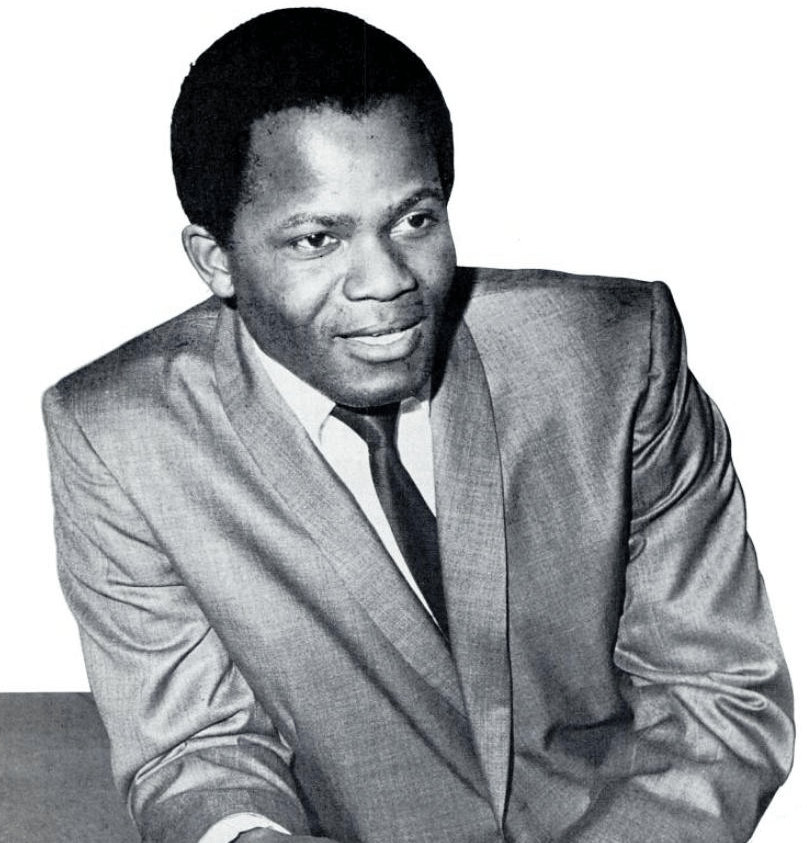Early life and music career
Soul singer-songwriter Joe Tex was born Joseph Arrington Jr. in Rogers, Texas, in 1933. Musically talented, he was already playing baritone saxophone and singing in their local church.
Tex entered several local singing contests. He won a cash prize (plus a trip to New York City) at another competition in nearby Houston.
In New York City, Tex entered the contest at the prestigious Apollo Theater. He would win the first place for the next four Apollo competitions, eventually leading him to his first contract at King Records.
However, things didn’t go smoothly at first. His stint at King Records from 1955 to 1957 was unsuccessful. After King, Tex singed with Ace but his singles were still flops. Around that time Tex had the opportunity to open for other artists such as Little Richard, Jackie Wilson and James Brown, who would become Tex’s fiercest musical and professional (as well as personal) rival. Stories of their bitter (and even rather violent) feud became a sort of stuff of musical legend.
How did Joe Tex “invent” rap music?
Anyway, around that time, Tex was perfecting his unique singing style (especially tricks with the microphone stand) and dance moves that would illustrate much of Tex’s later career. It is also claimed by many (including Little Richard) that Brown would also imitate Tex’s dancing moves. Tex would also adopt the style of speaking over the background music of his songs, or “rapping,” which would later be a usual characteristic of many of his tunes. This would form the earliest style of modern hip hop and rap music.
Finally, some majors hits for Joe Tex
Tex jumped from one label to another, recording briefly for Anna Records and then to Atlantic Records, but still success proved to be elusive for him. He had written “Baby You’re Right” and recorded on Anna; a year later Brown re-recorded his own version and it became a Top 10 R&B hit for him.
Around that time Nashville song publisher Buddy Killen discovered Tex, and this encouraged Killen to form his own label Dial Records so that he could showcase Tex’s talents.
Killen sent Tex to Alabama’s Muscle Shoals Studios, which wasn’t a trendy recording studio yet. There, Tex wrote and recorded “Hold What You’ve Got.” Released on Dial in late 1964, the single became Tex’s first major hit, hitting both the Top 10 pop and R&B charts (#5 and #1, respectively).
Since then Tex had been placing several Top 40 singles and minor Hot 100 hits. In 1965, he scored his second #1 R&B hit “I Want To (Do Everything For You)” which also peaked at #23 on the Hot 100. Later that year (or early in 1966) another #1 R&B hit “A Sweet Woman Like You” also peaked at the Top 40 pop chart at #29.
In 1967, Tex scored his second Top 10 pop hit with “Skinny Legs And All” which sold over a million copies. It appeared on his album Live and Lively.
Later life and career
After that, Tex subsequently scored mostly minor hits, the highest he could get was 1968’s “Men Are Getting Scarce” (#33 pop, #7 R&B).
Major hits had been relatively dry once again for Tex until 1972, when his single “I Gotcha” graced the Top 10 pop chart for the last time, at #2. The funk/disco single was also Tex’s last #1 R&B hit. The single’s LP of the same title was Tex’s most successful album, reaching #17 on the Billboard 200.
Much after the release of his most successful album and single, Tex virtually retired from recording and performing to become a Muslim minister; he had converted into Islam in 1966. In later years he joined the revamped edition of Soul Clan with Wilson Pickett, Ben E. King and Don Covay.
Tex’s last big hit on was “Ain’t Gonna Bump No More (With No Big Fat Woman)”, which was written by Bennie Lee McGinty and Buddy Killen, who also produced the single. It reached at #12 on the Billboard Hot 100, and #7 on the R&B singles chart in 1977.
Tex succumbed to a heart attack on August 13, 1982, just five days after his 49th birthday.

